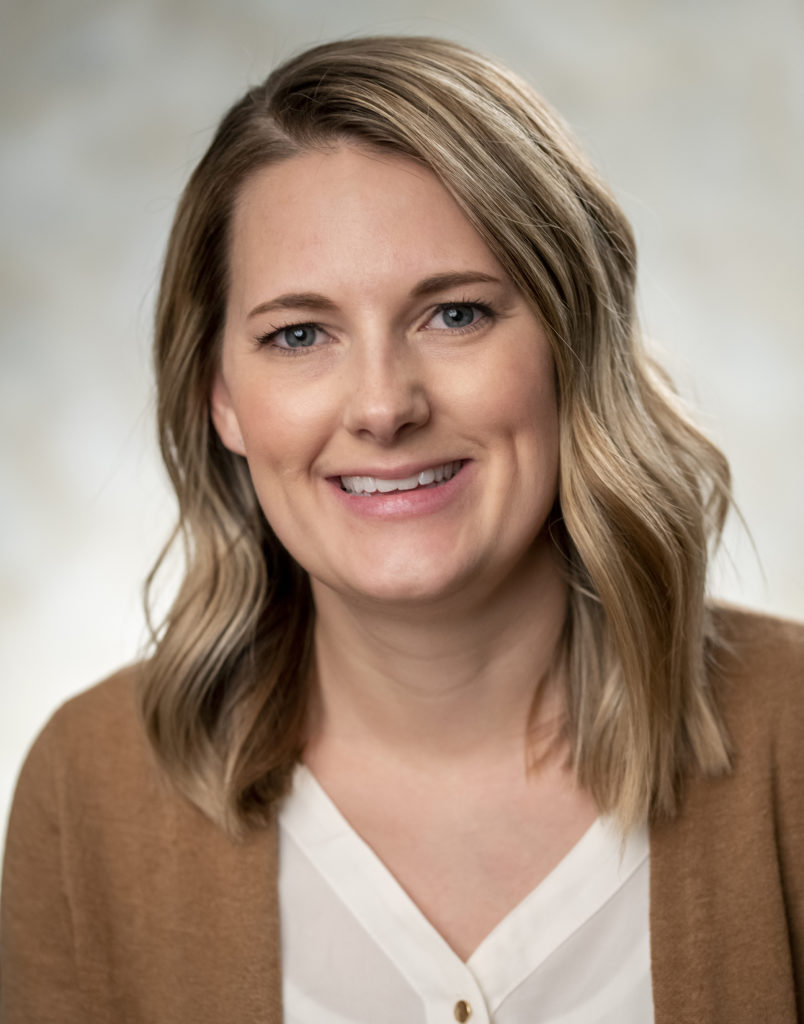Behavioral Health
Our Behavioral Health Clinic is integrated with our family medicine services to offer patient-centered care.
Dee Jay Donlin, Ph.D., LP, serves as Staff Clinical Psychologist and offers psychotherapy to patients in the behavioral health clinic, which is located in the Family Medicine Clinic at the Orange City campus. Kim Goslinga, FNP-C, PMHNP-BC, ARNP is a psychiatric mental health nurse practitioner providing psychiatric medication management for patients at the Orange City, Hospers, and Mill Creek clinic locations. Nicky Menke, LISW, is a Behavioral Health Therapist and Social Worker focusing on psychotherapy. These three skilled and compassionate specialists work closely with our primary care providers to offer holistic, patient-centered, coordinated behavioral-mental health care.
The best treatment option varies from person to person and depends on the individual’s needs and condition, and some people benefit from a combination of the two. If you are unsure where to start, please call the behavioral health department at and the team will help determine the best place to start.
Appointments can be made by calling the Orange City Area Health System family medicine clinic at 712-737-2000 or through your family physician.
Q: How would you define “behavioral health?” What role does it play in healthcare?
Dr. Donlin: In many circles, “behavioral health” and “mental health” are used interchangeably. However, “behavioral health” may also include additional care concerns including behavioral factors in chronic illness management, substance abuse conditions and diagnoses, health maintenance and oversight, etc. One of the most concerning statistics that I recently came across is that a patient with significant medical issues combined with significant mental health issues is likely to have a 25 year shorter life span than the patient without mental health issues. We also know that up to 60% of people attending primary care clinics (according to the World Health Organization) have a diagnosable mental disorder. There may be many reasons for these statistics, but I think it points to the fact that we need to be integrating medical care with behavioral health care in order to best serve our patients.
Nicky: Behavioral healthcare care are services and care that promote mental health and well-being and the prevention and treatment of mental health conditions and disorders. The treatment of those disorders can come in many forms; therapy services for the individual, couple, or family as well as medication management services. Behavioral healthcare is an important and necessary healthcare service for the overall wellbeing of people, because we know through research, that behavioral health has a direct effect on overall health and wellbeing.
Q: How does Orange City Area Health System’s Behavioral Health Clinic fit in — or ‘integrate” — with its family medicine clinic and services?
Dr. Donlin: In many settings, behavioral health services have often been provided in a separate location from medical services. This “silo” approach to care can contribute to logistical difficulties (for example–adequate access for patients, communication/coordination of care among providers) as well as stigma associated with the care. In order to provide more efficient, effective, and convenient services to patients, Orange City Area Health System is adopting a model of care in which behavioral health is not only co-located beside primary care providers, but also attempts to provide a truly integrated service in which family practice medical providers and behavioral health providers are working together as part of a collaborative team to best serve the needs of the patient. The model has been around for a while, and there appears to be increasing evidence that working collaboratively not only provides better outcomes for patients, but can also result in enhanced satisfaction for those providing the care.
Kim: In addition to what Dr. Donlin said above, we know that chronic illness increases the risk of depression, but also the reverse is true: depression increases the risk of certain illnesses (https://www.nimh.nih.gov/health/publications/chronic-illness-mental-health). Mental health cannot be separated from physical health, and for this reason integrating behavioral-mental health services within a primary care clinic is extremely beneficial. Integrated care improves communication between providers, continuity of care, and allows for a team approach while caring for patients suffering from both physical and mental health conditions.
Nicky: OCAHS promotes integration of all services by making an environment that is easily collaborative in nature between medical providers and behavioral health providers. Which results in better continuity of care outcomes for patients. Because of that collaborative environment all providers can be better informed on their patients, which allows providers to make the best choices, recommendations and treatment plans possible for the health and wellbeing of their patients. OCAHS takes a holistic approach integrating both behavioral healthcare with general healthcare in treating the whole person.
Q: What are some of the more common behavioral health issues that you have been seeing in northwest Iowa?
Dr. Donlin: A good number of people are just folks who have experienced significant stressors and are trying to find ways to cope. Sometimes they are demonstrating normal responses to abnormal situations, and sometimes they are dealing with normal situations through abnormal responses. Whether we call these responses depression, anxiety, or something else – the key is to develop healthy coping mechanisms for the stressors they face.
Nicky: Over the past few years we have seen an increase in the presence and experience of anxiety symptoms that negatively affects functioning, and stress related problems for people. These past few years have seen a lot of change and environmental stressors that we think contribute to the rise in anxiety disorders in people. We also commonly have seen depressive disorders, including seasonal affective disorders (SAD). We also commonly are seeing cases of ADHD and ADD in adults and children. Diagnosis and treatment for all of these conditions can be very helpful for people by teaching them new ways to cope and handle issues so that normal functioning can be restored.
Q. What’s the best way to get plugged into our behavioral health services? And what about confidentiality?
Dr. Donlin: Patients can set up an appointment by calling the clinic number 712-737-2000 and also through referral by their medical provider. Sometimes we even have the opportunity to initiate services during a medical visit, in order for the patient to meet the behavioral health provider and briefly discuss services that could be provided. Confidentiality is always the highest priority for the patient, yet it remains important for the medical provider to be aware of the behavioral needs of the patient and for the behavioral health provider to be aware of the medical issues involved to comprehensively address patient concerns.



